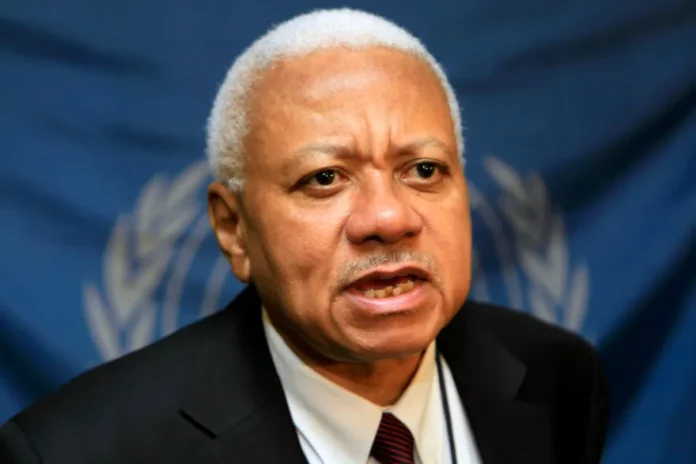GENEVA (Reuters) — A United Nations fact-finding mission said Friday that Sudan’s paramilitary Rapid Support Forces (RSF) committed multiple crimes against humanity during their siege of El Fasher, the capital of North Darfur, in western Sudan.
In a new report reinforcing earlier findings, the mission said the atrocities added to the widespread abuses committed by both the RSF and their rival, the Sudanese army, in a civil war that has entered its third year.
Neither side responded to requests for comment. Both have denied previous allegations from the United States and human rights groups, instead accusing each other of violations.
The report, titled “War of Atrocities”, found both sides conducted large-scale attacks on civilians and deliberately destroyed essential infrastructure including markets, hospitals, water and food supplies, and displacement camps. It said the siege of El Fasher was marked by grave violations by RSF forces and their allies, including killings, torture, rape and sexual violence, forced displacement, and the use of starvation as a weapon of war.
“Our findings leave no doubt: civilians are paying the highest price in this war,” said mission chair Mohamed Osman. He stressed that the systematic targeting of civilians was not accidental but “a deliberate strategy.” He also said the Sudanese Armed Forces were implicated in abuses, including killings, arbitrary detention, and torture along ethnic and political lines.
The report documented the killing of hundreds of civilians in and around El Fasher by RSF forces, including women and children from non-Arab communities such as the Zaghawa, Fur, and Masalit. In the Gezira region, the Sudanese army and its allies were accused of targeting the Kanabi community, leaving dozens dead and displacing most residents. The report also highlighted that violence had displaced more than 12 million people and left half of Sudan’s population facing severe food insecurity.
“Slaughterhouses”
From April 2023 to April 2025, more than 84 aid workers were killed, while others were detained or assaulted, and humanitarian convoys were attacked, the report said. Survivors described RSF detention centers as “slaughterhouses,” where torture, killings, summary executions, sexual slavery, and forced marriages of girls as young as 12 were carried out.
Ngozi Ezeilo, a mission member, said: “Behind every documented story there is a shattered family, a displaced community, and a survivor enduring unimaginable violence.” She added that decades of impunity had fueled the ongoing crimes.
Recommendations
The report urged an international arms embargo, support for the International Criminal Court, the creation of an independent judicial mechanism for Sudan, and the imposition of sanctions on those responsible for violations. Mission expert Mona Rishmawi called on the international community to “act immediately to enforce the arms embargo, support the ICC, establish a judicial mechanism for Sudan, apply universal jurisdiction, and ensure that orchestrators of atrocities face consequences, including sanctions.”
The UN Human Rights Council established the mission in October 2023 and extended its mandate until October 2025. Its role is to investigate violations of human rights and international humanitarian law amid the ongoing conflict between the Sudanese army and RSF.
Dozens of civil society groups, including Human Rights Watch, had urged the Human Rights Council to extend the mission’s mandate for at least two more years ahead of its 60th session scheduled for September–October 2025. In their letter, they stressed that both parties to the conflict committed grave abuses, including sexual and gender-based violence, and warned of the need to continue evidence collection to ensure accountability.
The civil war, which erupted in April 2023 after clashes between the two former power-sharing partners over plans to integrate their forces, has killed tens of thousands and caused the world’s largest displacement crisis, crippling Sudan’s health system, spreading disease, and targeting hospitals and displacement camps.
The fact-finding mission, composed of three members, based its latest findings on more than 200 interviews, many with survivors of violence, along with video material and reports from civil organizations.
Hundreds of thousands of civilians remain trapped under siege in El Fasher, the Sudanese army’s last stronghold in Darfur and now the front line of the war. The 18-page report, “War of Atrocities”, said the RSF and its allies used starvation as a weapon there, depriving civilians of aid, food, and medicine.


